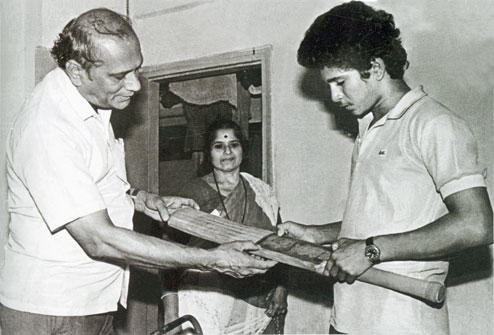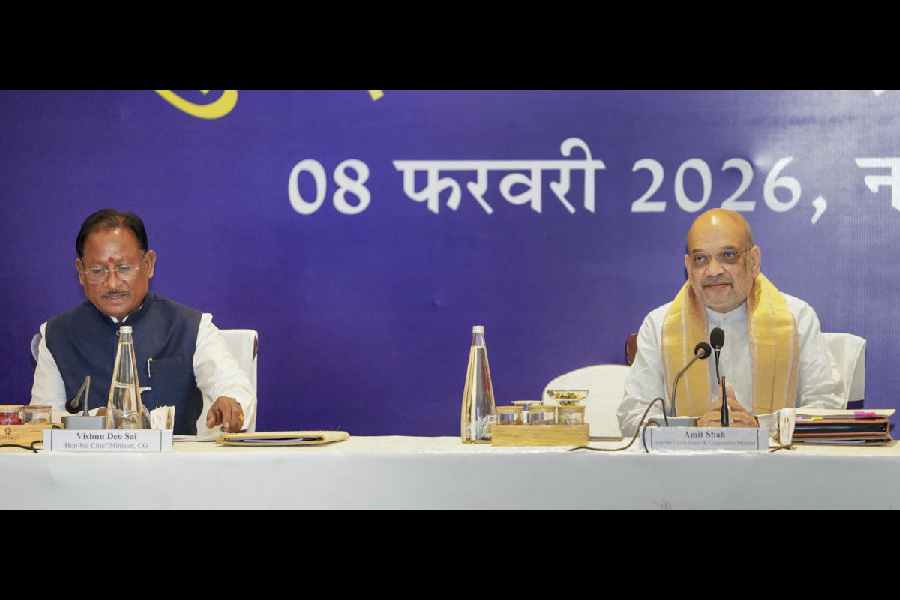 |
Playing it my way: My autobiography By Sachin Tendulkar, Hodder & Stoughton, Rs 899
Readers cannot be faulted for being assailed with a sense of déjà vu while reading Sachin Tendulkar’s autobiography (co-written with Boria Majumdar). This is because many of the anecdotes — on and off the field — that have found a place on these pages are already part of the public domain. For instance, most of the readers are aware about how serious cricket entered young Tendulkar’s life: our mischievous hero fell from a branch while plucking mangoes, forcing an exasperated Ajit, his brother, to take him to the famous coaching camp run by Ramakant Achrekar.
It would be harsh to expect the book to reveal little-known facts about an icon who has been under the glare of public scrutiny for over two decades. Yet, some of the anecdotes are enjoyable because of their freshness. Who would have known that the lanky Venkatapathy Raju — he was named ‘Muscles’ by Brian McMillan — had once tugged at the moustache of the beefy and temperamental Merv Hughes? Or that the hotel staff in New Zealand had sent Manoj Prabhakar, who claimed to have picked up a perfect accent, a ‘doctor’ after he had asked for an ‘adaptor’ to be sent to his room? We are also told that during the famous match that had been briefly interrupted by a sand storm in Sharjah, Tendulkar had planned to clutch on to Adam Gilchrist, who like the other players was lying flat on the ground, to prevent himself from getting blown away by the howling wind.
The media have been raving about Tendulkar broaching controversial subjects. These contentious topics include, among others, Greg Chappell’s nightmarish stint as the Indian coach, a confrontation with Ian Chappell who had been demanding — quite unfairly — Tendulkar’s retirement, and Rahul Dravid’s contested decision to declare the innings in Multan. The media’s excitement can be explained by Tendulkar’s reticence during his playing days. Tendulkar’s analysis of each episode reiterates the man’s honesty and his personal conviction. But then this kind of integrity is only to be expected of someone who, till date, has treasured his father’s advice on the virtues of transparency and humility. (The opening chapter starts with the father’s message on these lines to his prodigiously gifted son.)
Tendulkar remains equally modest about some of his Herculean feats, thereby reminding us that he is as rare a human being as a cricketer. This, for instance, is what he has to say about a particularly phenomenal display of batsmanship against the South Africans in Capetown: “Nevertheless, we did manage to show some signs of competitiveness in Cape Town and both Azhar and I got hundreds....” Incidentally, in that innings, Tendulkar was joined by Azhar with India reeling at 58/5 and the two players mounted one of the finest counterattacks ever witnessed in Test cricket. Tendulkar, true to his nature, remains unassuming in this chronological reconstruction of a golden career. It is only in the descriptions of his family or the injuries, the latter threatened to keep him away from the game he so loved, that Tendulkar allows his mask to drop occasionally, offering a glimpse of a scarred, anxious — human — soul.
What disappoints though is Tendulkar’s refusal to elaborate on the transformations that cricket has undergone and their implications on the future of the game. This silence is especially baffling because his balanced views on Twenty20 cricket — often considered to be the bane of the classical format — are particularly illuminating.
Brian Lara had comparable skills as a sportsman. But readers now know that what made Tendulkar even more special was his matchless ability to insulate himself from everything else but the world of cricket. For years, he had walked out to take guard knowing that the world outside had changed, his friends had retired, his kids had grown up, but that he alone could bear the weight of greatness.










